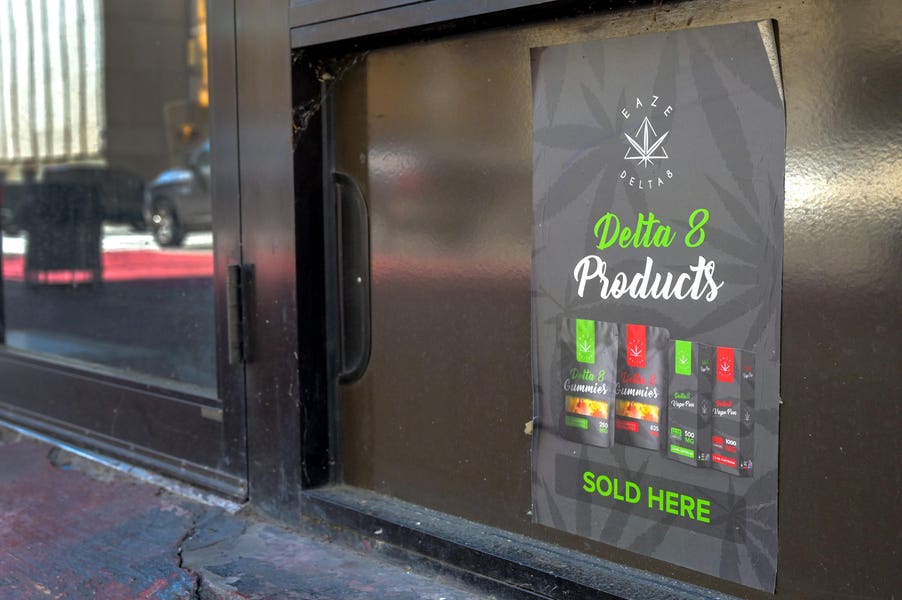[[{“value”:”
A Republican-led House committee has approved a spending bill that includes a measure to ban all hemp products with THC nationwide, a move that could upend the entire U.S. hemp industry.
The House Appropriations Subcommittee on Agriculture, Rural Development, Food and Drug Administration, and Related Agencies approved on June 5 the fiscal year 2026 spending proposal in a 9–7 vote, sending it to the full Committee.
The bill covers a wide range of issues, including hemp. One section of the bill would, in fact, redefine hemp under federal law to ban cannabis products that contain any “quantifiable” amount of THC or any other cannabinoids with similar effects or marketed as such on people or animals.
The language used to define hemp is similar to an amendment to the new Farm Bill that was approved last year by the U.S. House Agriculture Committee. That amendment, proposed by Republican Rep. Mary Miller of Illinois, aimed to shut down the gray market for intoxicating hemp-derived products like delta-8 THC by closing the loophole created by the 2018 Farm Bill. However, it wasn’t ultimately enacted by the last Congress.
Still, the goal remains the same: to close the hemp loophole that’s led to a flood of unregulated, intoxicating products being sold online and at gas stations nationwide, as emphasized by the Committee’s press release.
Specifically, the bill would redefine hemp to exclude any finished hemp products that contain cannabinoids not naturally produced by the plant, cannabinoids that are naturally occurring but were made or altered outside the plant, any quantifiable amount of THC or THCA, or other cannabinoids with similar effects on people or animals. It would also give the U.S. Secretary of Health and Human Services the authority to decide what counts as a “quantifiable amount” of THC or similar cannabinoids.
At the same time, industrial hemp grown for industrial purposes would be treated differently, signaling a significant change to the current hemp definition, which, under the 2018 Farm Bill, meant plants with no more than 0.3% THC by dry weight before harvest.
Paula Savchenko, Esq., founding partner of Cannacore Group and PS Law Group, said that the proposed legislation, while maintaining the legal status of industrial hemp for purposes such as fiber, grain, and certain edible products intended for human consumption, “would effectively ban the vast majority of hemp-derived cannabinoids,” adding that “its future will depend on further deliberations in Congress and potential revisions during the legislative process.”
The bill is now set for discussion and possible amendments before the full House Appropriations Committee on June 11.
Hemp Products With THC Spark Controversy
Hemp was legalized nationwide in 2018 with the Farm Bill, which set a limit of 0.3% THC for cannabis grown for industrial purposes. This was meant to keep hemp products from having the intoxicating effects of recreational cannabis, which remains illegal at the federal level.
But the rise of hemp cannabinoid extraction opened the door to products containing intoxicating hemp-derived cannabinoids like delta-8 THC, which users say produces a similar high to traditional cannabis.
These products are now widely sold in stores, gas stations, and online across the country. A 2022 study found they’re especially popular in states that haven’t legalized recreational cannabis.
The gray legal status of hemp products with THC has stirred concern over both safety and regulation. Though technically legal under federal law, their effects closely mirror those of recreational cannabis, which is still banned at the federal level. That disconnect has left states scrambling, as businesses capitalize on a loophole in the Farm Bill to produce and sell these products with little oversight.
Looming Crackdown On Hemp Products With THC
The boom of hemp products with THC has, in fact, fueled what’s expected to become a multi-billion dollar industry. But it has also pushed many states to step in with their own rules, some opting to regulate, others choosing outright bans. States like Minnesota, Iowa, and Kentucky have regulated products like delta-8 THC, while New York, Delaware, and Colorado, among other states, have banned them altogether. In recent months, Texas lawmakers have been trying to ban hemp products with THC.
While states continue crafting their own rules on hemp products with THC, this federal bill could shut the entire market down by banning all such products nationwide and closing the loophole that allowed hemp products with THC to be sold legally under the 2018 Farm Bill.
The move, however, has sparked a backlash from hemp industry associations.
Jonathan Miller, general counsel for the U.S. Hemp Roundtable, said in a press statement that the group is “deeply disappointed” with Rep. Andy Harris, Republican of Maryland, who chairs the House Agriculture Appropriations Subcommittee. Miller accused Harris of trying to “shoehorn a farmer-crushing, job-killing hemp ban into a spending bill,” and expressed hope that the effort will fail, as it has in the past.
Meanwhile, the National Cannabis Industry Association (NCIA) is calling on lawmakers to reject proposed language that would redefine hemp in a way that bans any product with a “quantifiable” amount of THC. The group warns that the ban on hemp products with THC would devastate legal businesses and drive demand toward the unregulated black market.
“}]] A Republican-led House committee has approved a spending bill that includes a measure to ban all hemp products with THC nationwide, a move that could upend the entire U.S. hemp industry. Read More


